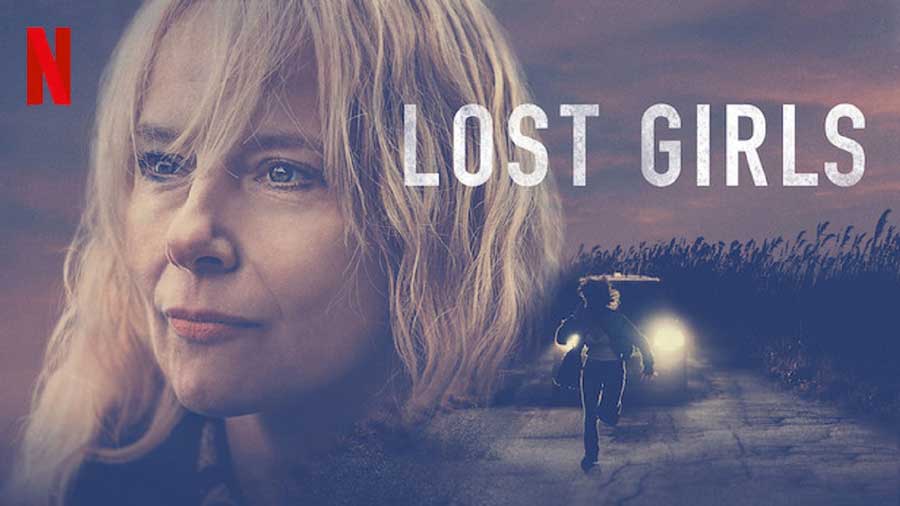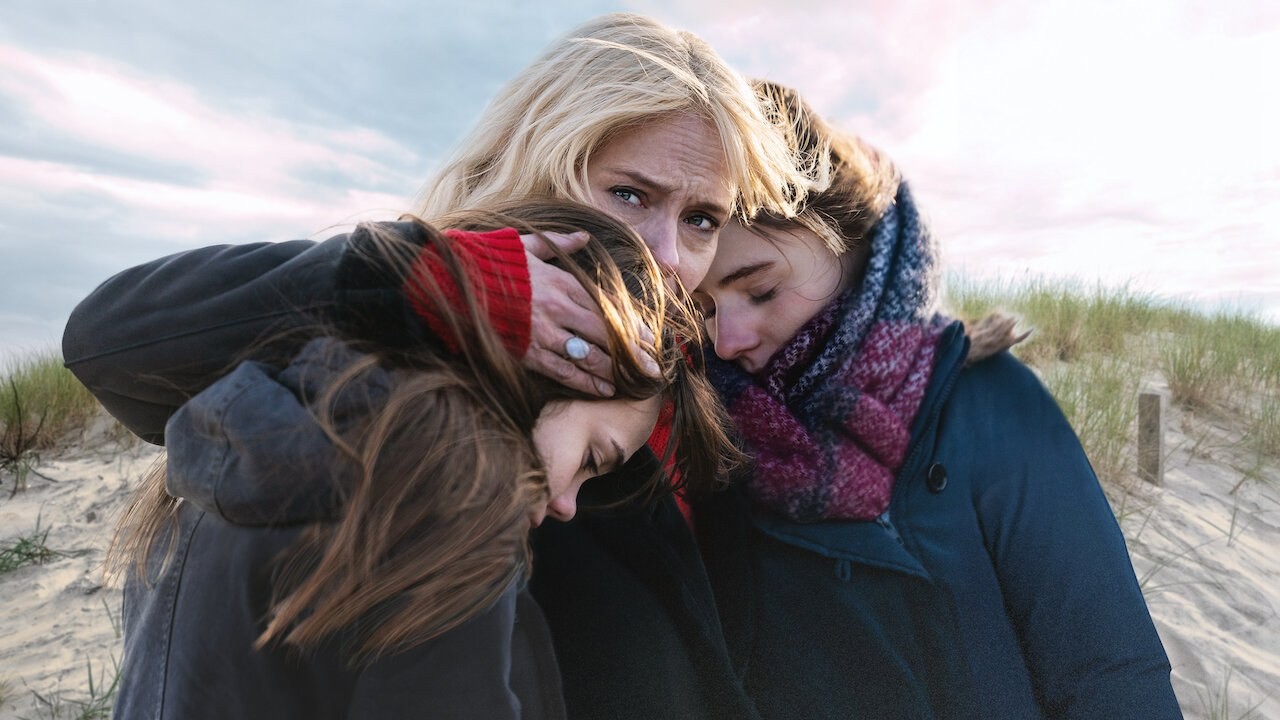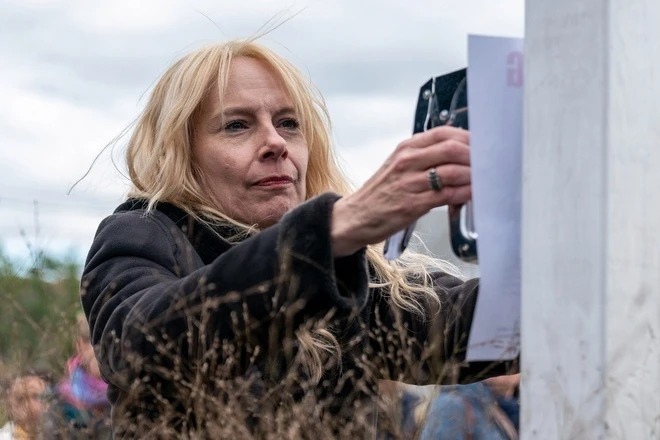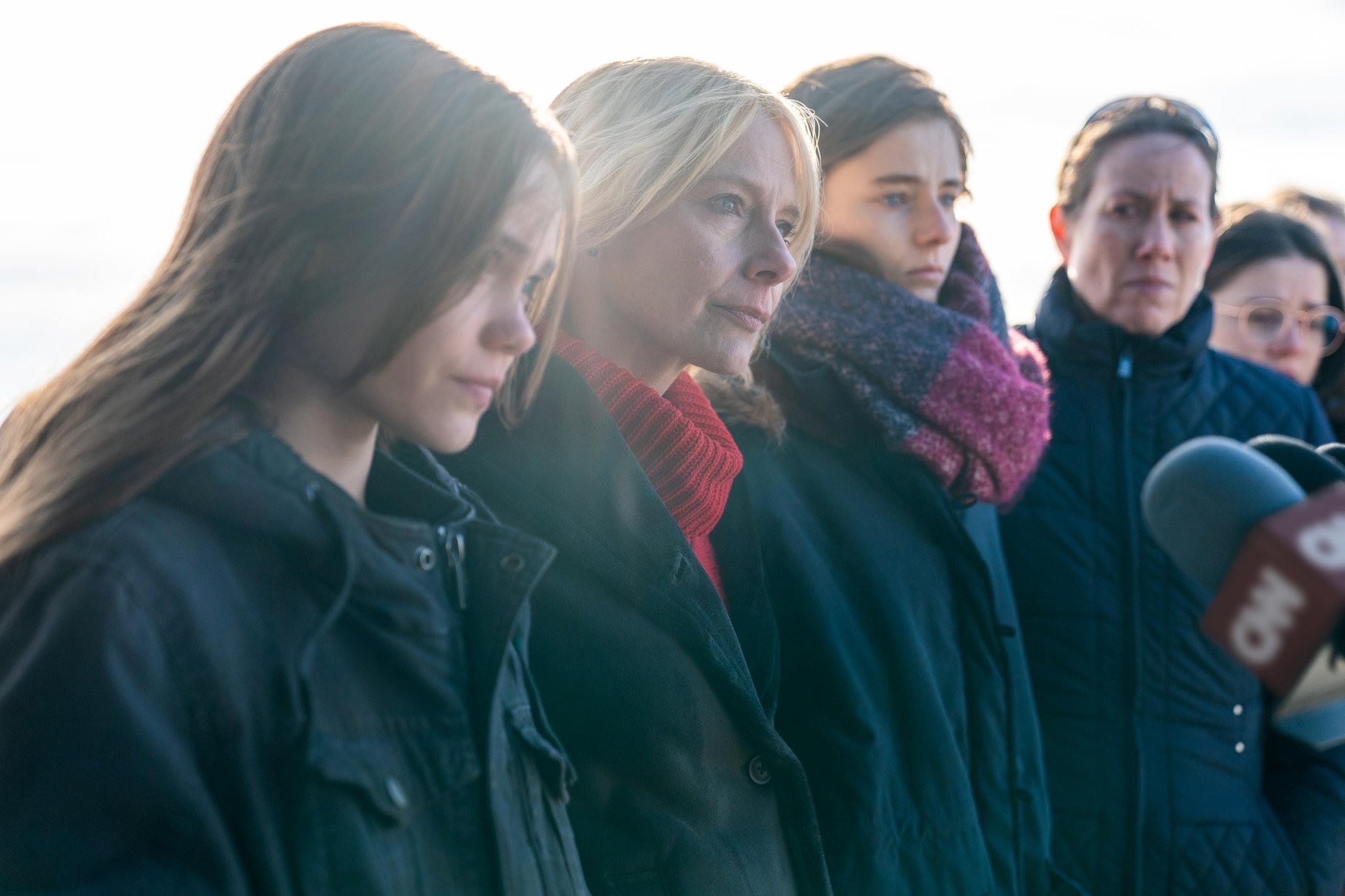Lost Girls (2020)

“Lost Girls” is a 2020 American mystery drama film directed by Liz Garbus and based on the book Lost Girls: An Unsolved American Mystery by Robert Kolker. The movie features a powerful performance by Amy Ryan and explores the real-life mystery of the Long Island serial killer. The film focuses on the investigation into the disappearance of young women and the journey of Mari Gilbert (Amy Ryan), a mother who is determined to uncover the truth behind her daughter’s death. “Lost Girls” brings attention to the victims of a cold case and highlights themes of grief, justice, and the failures of the justice system.
The plot follows Mari Gilbert (Amy Ryan), whose daughter, Shannan, is a sex worker who goes missing in 2010. Mari becomes obsessed with finding out what happened to Shannan and discovers that her daughter’s case is linked to a series of unsolved murders of other young women. As Mari pushes authorities to investigate the case seriously, she faces numerous obstacles, including the indifference of local law enforcement and the stigmatization of Shannan’s profession. Through her persistence, Mari uncovers disturbing details that expose a dark web of corruption and negligence. The film not only focuses on the mystery of the crimes but also delves into Mari’s emotional journey as a mother who refuses to give up.
The cast of Lost Girls delivers powerful performances that bring emotional depth to the film. Amy Ryan plays Mari Gilbert with intensity and compassion, portraying a mother’s fierce determination to find answers despite the obstacles she faces. Ryan’s performance captures both the vulnerability and strength of Mari as she battles against systemic indifference. The supporting cast, including Thomasin McKenzie as Mari’s daughter Sherre, and Gabriel Byrne as the local detective, adds further depth to the narrative. While the focus is on Mari, the portrayal of the other characters brings complexity to the story and reflects the real human impact of these tragic events.

“Lost Girls” tackles several important themes, primarily focusing on justice, grief, and the social invisibility of marginalized women. The film highlights the societal disregard for the lives of sex workers and the difficulty in finding justice for victims whose deaths are often dismissed. Mari’s journey emphasizes the pain of losing a loved one and the lengths a parent will go to in order to seek closure and justice. The film also critiques the failures of the criminal justice system, particularly how it deals with cases involving vulnerable individuals. Ultimately, Lost Girls advocates for the recognition of the humanity of these women and the need for better protection and accountability.

Liz Garbus’ direction in Lost Girls skillfully balances the mystery of the case with the emotional depth of Mari’s journey. The film’s pacing, while steady, allows viewers to reflect on the emotional weight of the story. The cinematography by Igor Martinovic is subtle yet effective, using muted tones and urban landscapes to reflect the bleakness of the situation. The camera often lingers on the faces of the characters, emphasizing the emotional strain they experience. The film’s somber tone is enhanced by its quiet, observational style, which makes the story feel even more real and urgent.

Lost Girls is a powerful, poignant film that shines a light on a real-life tragedy while also exploring broader themes of grief, justice, and societal neglect. Through Amy Ryan’s exceptional performance and Liz Garbus’ sensitive direction, the film brings attention to the victims of the Long Island serial killer and their families’ fight for justice. It is a compelling and thought-provoking exploration of the failures of the justice system and the need for greater empathy toward marginalized communities. Ultimately, Lost Girls serves as a reminder of the importance of perseverance and the need to fight for those whose voices are too often ignored.











